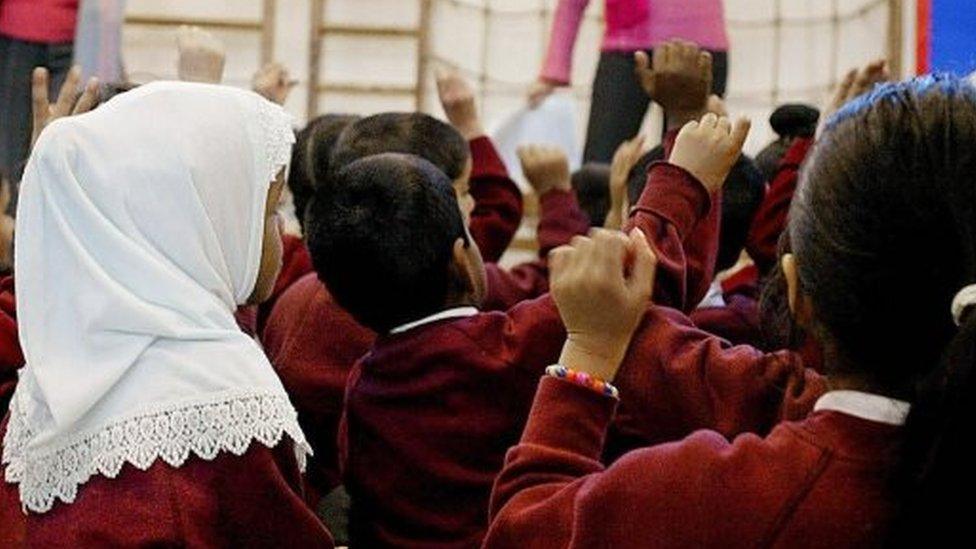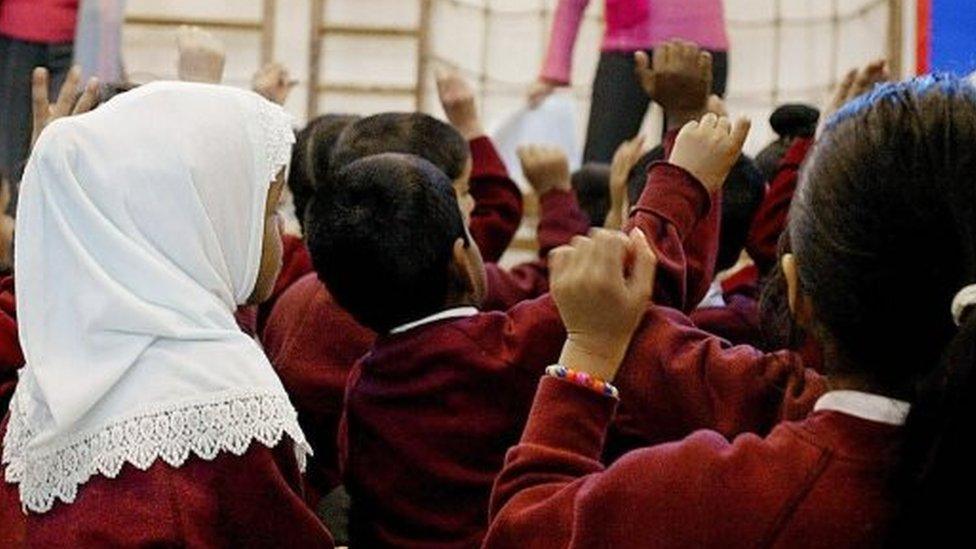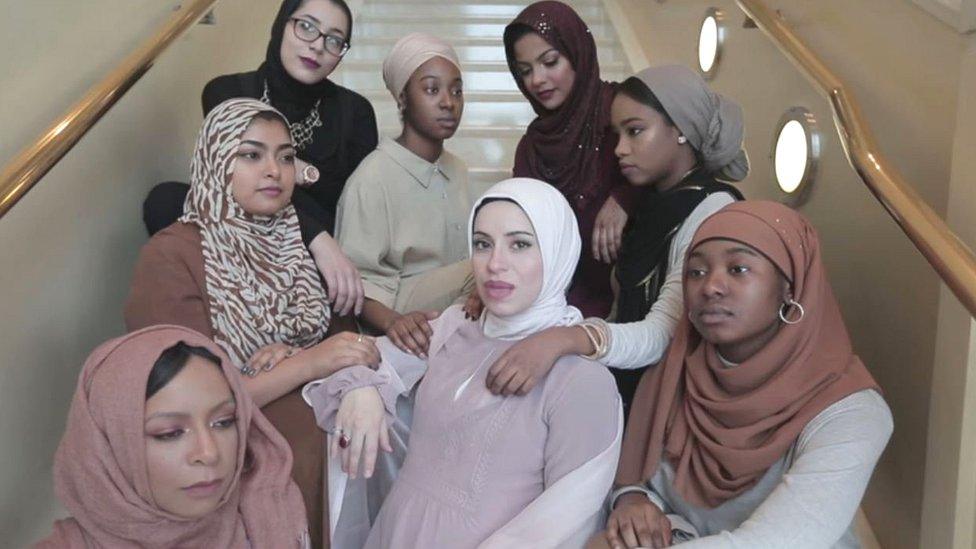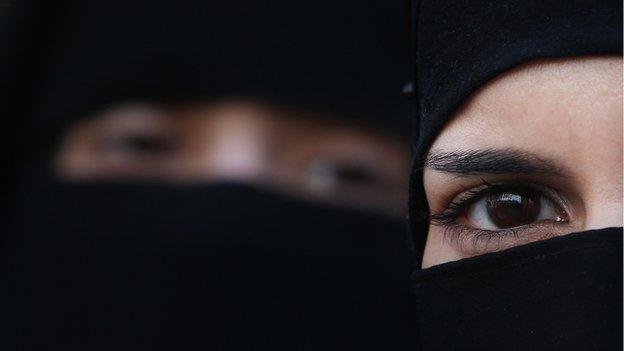Campaigners condemn 'ludicrous' hijab questioning
- Published

Muslim campaigners have condemned "discriminatory" plans for school inspectors to question girls who wear hijab in primary school.
Head of Ofsted Amanda Spielman said pupils would be asked why they wear the headscarf, which "could be interpreted as sexualisation of young girls".
But some have asked why the pupils and not the schools will be challenged.
Ofsted said the move was in line with its current practice of assessing whether a school promotes equality.
The hijab is traditionally worn as a sign of modesty once a girl reaches puberty.
Research by the National Secular Society in September suggested 59 of 142 Islamic schools, including 27 primary schools, in England have a uniform policy which states a head-covering is compulsory.
"The hijab in primary schools should be something that is dealt with via the schools uniform policy," said Sajda Mughal, head of JAN Trust, a charity working with BAME and Muslim women.
She called the move by Ofsted "nonsense and discriminatory" and said it will be used by extremists to advance their narrative of "them and us'" and could fuel marginalisation.
"I know as a Muslim mother of young girls, I'd be alarmed and horrified if I found that my daughters were questioned if they wore the hijab," she said.
This was echoed by human rights campaigner Aisha Ali-Khan, who said the primary schools should be held to account "rather than quizzing little girls".
Oftsed should instead ask "why are primary school uniform policies allowing hijab for girls under the age of puberty when Islamic laws state otherwise," she added.
Allow X content?
This article contains content provided by X. We ask for your permission before anything is loaded, as they may be using cookies and other technologies. You may want to read X’s cookie policy, external and privacy policy, external before accepting. To view this content choose ‘accept and continue’.
But Amina Lone, from the Social Action and Research Foundation, was one of those who lobbied Ofsted to take action.
"As a second generation Muslim woman and a parent, I have huge concerns about the increasing encroachment of gender inequality in public spaces for women of faith," she told the BBC's Asian Network.
"The hijab is absolutely not required for children.
"Gender equality was hard fought for in this country and we shouldn't be diluting that."
She said it was "absurd" to be having this debate in 2017 and stressed this was not about secondary school children or adults.
There is no ban on Islamic dress in the UK, but schools are allowed to decide their own dress code.
Current government advice, external states: "Pupils have the right to manifest a religion or belief, but not necessarily at all times, places or in a particular manner."
Shereen, a hijabi, said the choice should be between the parents and the child.
The mother-of two, whose own daughters do not wear a hijab, said the headscarf has been misrepresented.
"It has nothing to do with sexualising children. That claim is ridiculous," she told the BBC Asian Network.
Vlogger and mother, Nilly Dahlia agreed. She started wearing hijab aged 22.
"Hijab is not about sexualisation. It is a sign of submission to our faith," she said.
"I do feel like the government are trying to control Muslims."
'Common sense'
But blogger Hifsa Haroon-Iqbal said the issue was simply a school uniform one.
"If schools do not want young children in primary education to wear hijabs in school, this needs to be made explicitly clear within the school uniform policy.
"This is not about racism, being islamophobic or discriminatory. It is common sense," the mother-of-three wrote, external.
"To subject a young child to questioning about why they are dressed in a particular way is ludicrous as it will always warrant the same response, 'because my mother dresses me'."
- Published19 November 2017

- Published31 March 2017

- Published31 May 2018
